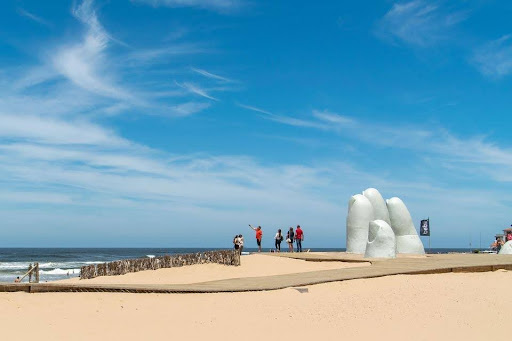When embarking on a recovery journey, every facet of your life comes under scrutiny. From your daily routine to the relationships you keep, everything must be examined for its influence on your well-being. One aspect that often doesn’t receive the attention it deserves is the role of geographical location in the recovery process. The environment you find yourself in can have a significant impact on your journey towards sobriety. This rings particularly true for those living in vibrant, bustling locales like Southern California.
Southern California, with its sun-soaked beaches and star-studded social scene, is a place of dreams for many. From the glitz and glamor of Hollywood to the tech hubs of Silicon Valley, this place has a charm that’s hard to resist. Yet, for individuals grappling with substance abuse, this allure can sometimes transform into a challenging obstacle in their journey towards sobriety.
Los Angeles, the heart of Southern California, is a city of contrasts. On one hand, it’s a city of ambition, success, and opportunity. On the other hand, it’s also a city that harbors a darker side. For those struggling with substance abuse, the city’s relentless pace, coupled with the availability and normalization of substance use in certain circles, can exacerbate their battle against addiction. It’s no secret that the city has been battling its own drug crisis, often hidden behind the high walls of celebrity homes and secluded beachfront properties.
That’s not to say that one can’t find tips for getting sober in LA. There is a robust network of support groups, rehabilitation centers, and mental health professionals offering assistance. However, the city’s conflicting characteristics can make it challenging for some individuals to stay on the path of recovery. The constant reminders of past habits, familiar triggers, and old acquaintances involved in substance use can be a stumbling block on the road to sobriety.
In such cases, leaving Southern California might not just be a choice, but a necessary step towards a healthier future. It’s a decision that requires courage, conviction, and a belief in the possibility of a fresh start. The following sections delve into the reasons why leaving Southern California could indeed be the best thing for your recovery journey.
The Benefits of Leaving Southern California for Recovery
Stepping away from familiar environments and venturing into unknown territories is a daunting prospect. Yet, when it comes to recovery, this leap of faith can be incredibly beneficial.
Firstly, leaving Southern California can help you escape familiar triggers. The sight of certain places, the smell of particular foods, the sound of a certain type of music – these can all serve as potent reminders of past substance use. Being in the same environment where substance use was prevalent can make it difficult to break free from old habits. By moving away, you get the chance to start afresh, in a place that doesn’t carry the same memories or associations.
Secondly, breaking away from unhealthy social circles is a crucial aspect of recovery. Peer pressure and social influence can be significant factors in substance use and relapse. Southern California, especially places like LA, are known for their vibrant social scenes, which can often involve substance use. Leaving the city allows you to distance yourself from these influences and build new relationships that support and foster your sobriety.
Lastly, leaving gives you the chance to explore new environments and cultures. This is more than just a change of scenery. It’s an opportunity to redefine who you are outside the context of substance use. You get to immerse yourself in new experiences, meet diverse people, and broaden your horizons. This can be an enriching experience that not only aids your recovery but also contributes to personal growth and development.
Exploring the Concept of “Addiction Treatment”
Addiction treatment is a comprehensive approach to manage and overcome substance use disorders. It involves a combination of medical, psychological, and social strategies aimed at helping individuals stop substance use, maintain a drug-free lifestyle, and achieve productive functioning in the family, at work, and in society.
It’s important to understand that addiction treatment is not a one-size-fits-all solution. It’s a personalized plan tailored to meet the specific needs of an individual. These needs often extend beyond the realm of substance use and include aspects like mental health, physical wellness, and social wellbeing.
The role of environment in addiction treatment is often overlooked but is crucial. The environment can either support or hinder the recovery process. For example, an environment that encourages substance use or doesn’t provide access to necessary support systems can be detrimental to recovery. On the other hand, an environment that fosters healthy habits, provides access to support, and is free of substance use triggers can significantly aid the recovery process.
Transitioning to recovery in a new environment, away from Southern California, can be an effective component of addiction treatment. It can help individuals avoid relapse triggers, break free from harmful social influences, and develop new, healthy habits. This process, while challenging, can significantly enhance the effectiveness of addiction treatment and improve the chances of long-term recovery.
Case Study Analysis: Proven Benefits of Out-of-town Recovery
The positive effects of changing one’s environment during recovery are not merely anecdotal. Several studies underline the potential benefits of this strategy.
A 2014 study in the journal Substance Abuse Treatment, Prevention, and Policy found that individuals who traveled for treatment had higher completion rates than those who sought treatment locally. This study suggested that the act of traveling for treatment might be associated with a greater commitment to complete the program, possibly due to the financial, temporal, and emotional investment involved in the journey.
In another study published in the Journal of Substance Abuse Treatment in 2017, researchers found that patients who attended out-of-area rehabilitation programs had lower rates of relapse. The study surmised that the reduced exposure to local drug-related cues and the disruption of drug-related routines through geographical separation might have contributed to these outcomes.
Yet another study, conducted by the National Institutes of Health in 2020, showed that exposure to new environments can help in re-establishing healthier neural pathways, which can aid in resisting relapse. The study suggested that a new environment can serve as a catalyst for the brain to break away from old habits and form new, healthier ones.
These studies collectively reinforce the argument for considering a geographical shift as part of one’s recovery journey. Leaving Southern California to pursue recovery in a new setting can be more than just a symbolic fresh start; it can be a scientifically supported strategy to enhance recovery outcomes.
The Path to Overall Wellness
Recovery is not just about achieving sobriety. It’s about reclaiming your life and attaining a state of total health. This includes physical, mental, and emotional health, as well as social and spiritual wellbeing.
A holistic approach to recovery emphasizes this broader perspective. It involves addressing all aspects of an individual’s life, not just their substance use. Nutrition, exercise, sleep, stress management, mental health care, social relationships, and spiritual growth all become part of the recovery journey.
Leaving Southern California can be an opportunity to embrace this holistic approach. Away from the city’s fast-paced lifestyle, you can take the time to focus on your overall well being. You can explore outdoor activities, learn new skills, cultivate healthier relationships, and engage in mindfulness practices. This can not only aid in your recovery but also improve your quality of life in general.
Empowerment and Hope in Recovery
It’s essential to remember that the road to recovery isn’t linear, but rather, it is a path marked by peaks and valleys, successes and setbacks. The journey is unique for every individual, and the steps you take towards your recovery should resonate with your personal experiences and aspirations.
The power of choice is a cornerstone in this journey. The decision to leave Southern California, to break away from familiar triggers and detrimental influences, is a testament to your resilience and determination. It’s a choice that embodies a commitment to change, to personal growth, and to the pursuit of overall wellness.
While the challenges of overcoming addiction may seem daunting, the possibility of sobriety and recovery is not just a distant dream but a reachable reality. Science and personal experiences back this claim. Various studies affirm the benefits of out-of-town recovery, showing lower relapse rates and higher treatment completion rates. Moreover, countless success stories serve as inspiring examples of individuals who have overcome addiction to lead fulfilling, sober lives.
Your willpower is a potent tool in this journey. Harnessing it to make difficult but necessary decisions, like leaving Southern California, can significantly influence your recovery outcomes. Remember, willpower is like a muscle – the more you exercise it, the stronger it becomes. Each day that you commit to your recovery, each time you say no to substance use, you’re strengthening this muscle.
An essential part of this empowering journey is the support you receive. While the decision to recover is deeply personal, the journey need not be solitary. Reach out to trusted friends, family members, or support groups. Lean on professionals like therapists and counselors. Remember, asking for help isn’t a sign of weakness, but a mark of strength.

























